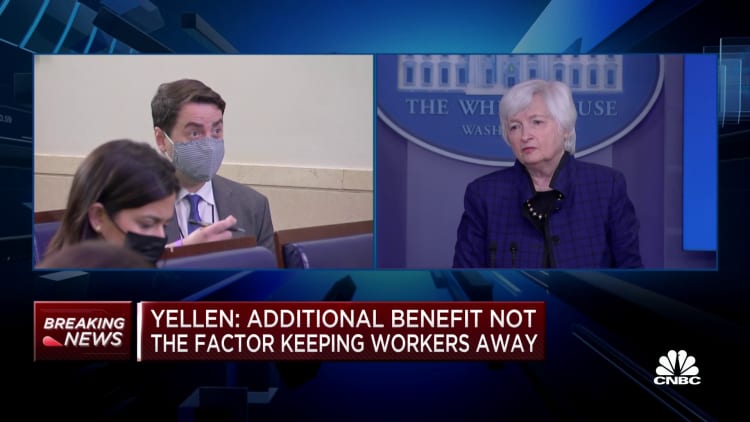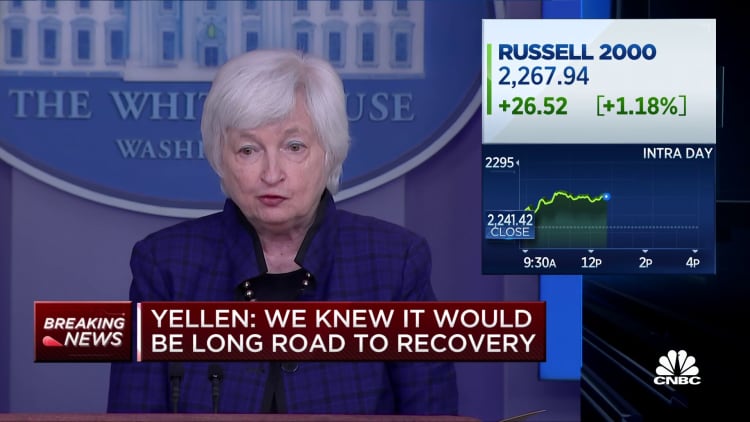Treasury Secretary Janet Yellen urged congressional leaders on Thursday to step up spending, saying that the government is operating on a budget that is more than a decade behind the times.
In remarks to a House panel that will have large sway over spending, Yellen said that inflation-adjusted spending has remained stagnant for 11 years.
Noting the aggressive programs the Treasury already has implemented to carry the economy through the Covid-19 pandemic, she asked for still more expansive fiscal policy across a variety of areas.

"Our team has done valiant work implementing these programs with the resources at our disposal," Yellen said in prepared remarks to the subcommittee on financial services and general government committee on appropriations. "But we cannot continue to be good stewards of this recovery – and tackle the new bodies of work that Congress assigns to us in the years beyond – with a budget that was designed for 2010."
Her comments come a day before President Joe Biden releases his first budget, an expected $6 trillion spending plan to be financed by tax increases and heavy deficit spending to the tune of $1.3 trillion annually.
Among the administration's priorities is a sweeping infrastructure plan likely to total more than $1 trillion.
Along with that, Yellen said stronger spending is needed for her department, particularly in tracking financial crimes, community development projects and in cracking down on tax cheats. Yellen asked for $13.2 billion to fund IRS discretionary spending and $417 million to guide the American Families Plan.
She noted that areas including domestic finance, economic policy and tax policy have seen their budgets cut by up to 20% since 2016.
"The speed and strength of our recovery – and our economy, long-term – depend on a fully funded Treasury," Yellen said.

The government ran a $3.1 trillion deficit in fiscal 2020 and already has accumulated more than $1.9 trillion in red ink through the first seven months of fiscal 2021. The deficit as a portion of GDP soared to nearly 15% in 2020, the highest level since 1945.
Dating back to her days as Federal Reserve chair, Yellen has long called the nation's fiscal path "unsustainable," but has advocated more spending at a time when interest rates are low and the economic recovery remains incomplete.
She subsequently told the committee during Thursday's hearing that she sees costs to finance the debt remaining "very manageable" as she and other economists see interest rates staying low.
Become a smarter investor with CNBC Pro.
Get stock picks, analyst calls, exclusive interviews and access to CNBC TV.
Sign up to start a free trial today.


